In 1978, California organizers chose March 8 to celebrate Women’s History Week in alliance with International Women’s Day. The following year, other communities initiated their own Women’s History Week celebrations.
In 1980, the National Women’s History Alliance (formerly known as the National Women’s History Project) led efforts to lobby for national recognition. In February that year, President Jimmy Carter issued a Presidential proclamation declaring March 8th (week) as National Women’s History Week. Seven years later, Congress designated March as Women’s History Month.
We thought we’d take a moment to ask how some of our own HR leaders got their start, what they’ve learned and are proudest of, and what they’d advise their younger selves—and by extension, others at UW–Madison who are earlier in their HR careers.
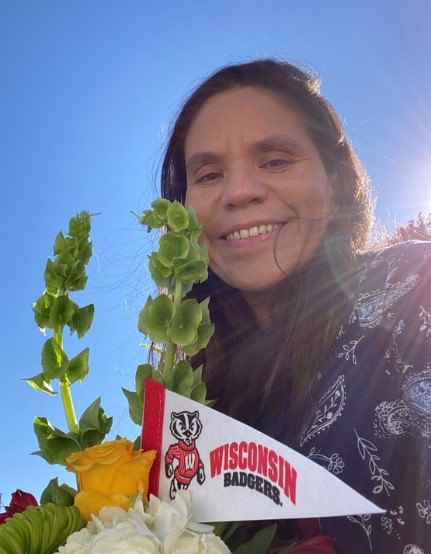 Angie Rosas
Angie Rosas
Human Resources Director, Wisconsin Public Media
How did you get your start in HR?
I went from working in management in the restaurant service industry in the late 90’s to working at the State of Wisconsin Department of Revenue in 2005, leading the Records Management and Office Services Unit until about 2008. In 2008, I was offered and accepted a position working at UW–Madison in the Academic Personnel Office (APO) as an HR Assistant. It’s been all HR, all the time ever since.
What are you proudest of in your career?
My teams. By far, working with dynamic, promising and innovative teams that push me to think differently and continue to challenge me to walk my talk. This has helped me to evolve my thinking and ability to progress all kinds of goals, as well as to evolve personally. By teams, I mean many groups: first and foremost, my HR teams, but also committees and working groups across campus. I’m so fortunate to be able to work in a wide variety of spaces, from governance to management and leadership, to groups focused on advancing diversity, equity and inclusion (DEI) efforts. These are spaces where people hold very different and seemingly competing perspectives. It’s been eye opening and transformative, and I am proud of the work I’ve done as part of these teams.
What’s been one of your most profound lessons learned over the course of your career?
The more experience I gain, the less I realize I know. I need to be open to knowing what I don’t know and having my truths be challenged. This is hard—but makes for better outcomes, allowing me to learn, both personally and professionally.
What would you tell your younger or less-experienced self – and by extension, the many women who are in their early or mid-careers in HR at UW–Madison?
Strive to be curious. When something is so dissonant from your way of thinking, there is something to learn. Be curious and open yourself up to understanding vastly different perspectives. You may have the opportunity to build or do something that’s never been done before.
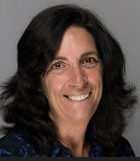 Cheryl Bowes
Cheryl Bowes
Interim Human Resources Director, College of Agricultural and Life Sciences (CALS)
How did you get your start in HR?
I began my HR career with CALS twelve years ago after having served in a variety of administrative support roles. Back then, one had to pass a written state exam in order to be considered for interviews. No one was more surprised than I was when I was contacted and later offered a CALS HR Assistant position!
What are you proudest of in your career?
During my career, I’ve worked for a number of highly reputable organizations with missions closely aligned with my beliefs and values. UW–Madison is held in high-esteem, and it is truly an honor to work alongside world-renowned faculty, staff, and students. I’m also proud to have earned my bachelor’s degree from UW–Madison while working full-time. Furthermore, I’ve lived near campus for nearly 30 years, and I take great pride in being part of the Badger community.
What’s been one of your most profound lessons learned over the course of your career?
Over the course of my career, I’ve learned there’s typically more than one way to achieve an outcome, and what’s worked before, may not work now. It’s crucial to seek a variety of perspectives when considering an approach or path as more heads are ultimately better than one. While this is true in many careers, this is especially true in HR. One must collaborate—and expect the unexpected—in order to solve problems well.
What would you tell your younger or less-experienced self – and by extension, the many women who are in their early or mid-careers in HR at UW–Madison?
My younger self would appreciate knowing that taking a non-traditional career path is not necessarily a barrier to success. For those new to HR, it helps to connect with others who can share how they’ve approached the task at hand. You’ve got a welcoming community of practice here to support you. Reach out anytime!
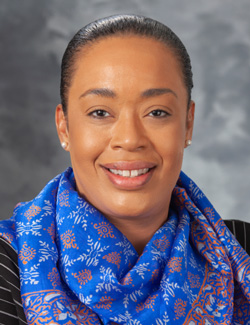
Hope Broadus
Associate Dean and Chief Human Resources Officer for the UW School of Medicine and Public Health (SMPH)
How did you get your start in HR?
I used to practice law as an employment/labor attorney. In my last attorney job, I worked with a great regional HR manager and in her, I saw how I wanted to impact the world of work. In short, I wanted to be closer to the action. So, I started looking for HR roles in employee and labor relations, and began my HR career at the San Francisco Public Utilities Commission as a Senior HR Analyst in their Employee and Labor Relations and Equal Employment Opportunity (EEO) Programs unit. In that role, I was definitely right in the middle of everything—and loved it!
What are you proudest of in your career?
Not being afraid to do the next thing—or perhaps more accurately, not letting fear get in the way of my taking on the next role or assignment, even if it was very different from what I’d been doing prior or had become used to. I’ve brought this mindset into my leadership in HR and really pushed for my teams to add value to the organizations that we support (sometimes a very new concept). This elevates how folks think about HR.
What’s been one of your most profound lessons learned over the course of your career?
A Grounds Manager and Nobel Laureate (leading an academic department) have the same people issues and they both need HR professionals to help solve those issues. I’ll say it again – they need you. It’s powerful when you stop to think about how HR can help positively impact how people issues are handled.
What would you tell your younger or less-experienced self – and by extension, the many women who are in their early or mid-careers in HR at UW–Madison?
Keep going. It’s going to be fine—even good! Don’t let what other people think throw you off your course. When I decided to make the transition from law to HR, I had a few interviews early in my job search that didn’t go well. I remember people asking me why I would want to give up practicing law to move into an HR role, why I wanted to throw away three years of law school, etc. They said it in a way that it really downplayed how important and impactful HR can be in an organization and the skills it takes to be successful in HR. I was ready to give up and just stay where I was. There may have been times, a bit earlier in my career, when I would have just done what I was “supposed to do.” But something inside of me told me I was doing the right thing for me. And I was. I eventually got a great first HR job, working for someone who really got it (he was also a recovering attorney)! I’ve never looked back. I use the skills from my former career all the time—and didn’t give up anything! To this day, I can remember how scary and uncomfortable it was to make the jump. I’m so glad I pushed ahead. Keep. Going.
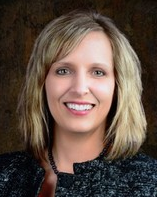 Jenny Kvistad
Jenny Kvistad
Human Resources Director, Division of Information Technology (DoIT)
How did you get your start in HR?
Despite all my preparation, I realized only after starting law school that I’d be spending more time with legal cases than humans. I was introduced to HR by a co-worker who was working on her degree in HR while I was working as a Portuguese/English technical translator. She thought my legal background and desire to work more closely with people would be a good fit for the profession. This piqued my curiosity. Coincidentally, we didn’t even have an onsite HR presence at that organization—just a 1-800 number. I began working for a temp agency where I was quickly immersed in interviewing, drug testing, and cold calling, and subsequently worked within different companies as a temporary employee. I quickly realized the importance of organizational culture and then found my first job as an HR Assistant. I soon realized I needed to advance my relevant education and earned my MBA over several years while working. I’ve been at UW–Madison for over 12 years now.
What are you proudest of in your career?
I take pride in the organizational impact the DoIT HR team has made over the years. I believe we have successfully left an imprint of continuous improvement, innovation, and best practices—and continue to do so!
What’s been one of your most profound lessons learned over the course of your career?
Always ask the “why” and always provide the “why.” The approach is simple though the results can be profound. If we understand why an employee situation is occurring or a request is made, we can better advise. If we are making decisions and sharing information with employees, we can usually provide reasoning to increase understanding among those impacted. Don’t assume you or others already know the why.
What would you tell your younger or less-experienced self – and by extension, the many women who are in their early or mid-careers in HR at UW–Madison?
Break through your own boundaries! Share your development needs and interests with a trusted colleague or supervisor. If you wish you had a mentor, seek one out. If you want to explore a new area or skill, ask for opportunities in the workplace or join a professional network like SHRM. Create the network you wish you had by inviting someone to coffee, asking for feedback, or reaching out for input to solve a challenge you need help with. We have so many rich opportunities within the UW–Madison HR community and more control over these types of activities than I ever realized early in my career.
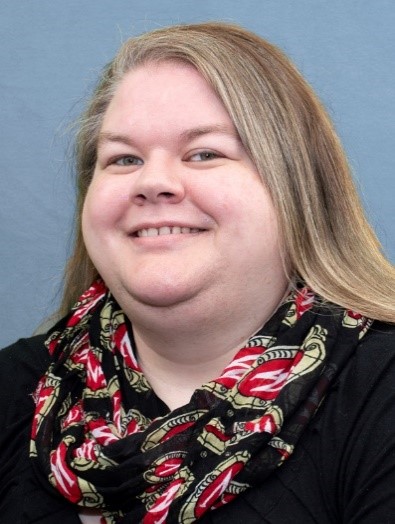 Jessica Belcher
Jessica Belcher
Human Resources & Finance Director, Division for Teaching and Learning (DTL)
How did you get your start in HR?
My HR work started at Bowling Green State University by supporting staff in grant projects with effort certification and the split billing of their time. As time went on, I worked on staff contracts and hiring short-term employees. When I joined UW–Madison in 2018, my job included all aspects of department level HR. In 2019, the division (formerly Collaborative for Advancing Learning and Teaching), bought out part of my time to support HR for the other departments in the division. In July 2021, we underwent a divisional reorganization that increased our staff, and I moved into a divisional role overseeing HR and finance.
What are you proudest of in your career?
The reorganization is a highlight of my career as it required successful navigation of a lot of moving parts as well as supporting staff affected by the moves (while they also dealt with the single payroll transition and TTC). We saw movement of staff within our division, including 50+ staff who joined our division from other parts of campus. I enjoyed getting to work with other division leads on this transition project.
What’s been one of your most profound lessons learned over the course of your career?
In my HR career, the greatest lesson I’ve learned is to approach every situation from a place of empathy. We all yearn for others to consider our perspective and feelings, and this is especially important in HR where people are coming to you about very personal matters of great concern to them. What may seem like a simple or easy thing to an HR professional could be causing an employee a great deal of stress and uncertainty.
What would you tell your younger or less-experienced self – and by extension, the many women who are in their early or mid-careers in HR at UW–Madison?
My advice to my less experienced self and to others is to remember that process is important, but people are at the heart of HR. When doing this work, it’s easy to get bogged down in the process, procedures, and programs—but none of that matters if we don’t remember that the work impacts real people. Responding to employees’ inquiries in a timely manner is very important even if you don’t have an answer for them yet. Just letting them know you are on it and care about their needs will help you build a great reputation in HR.
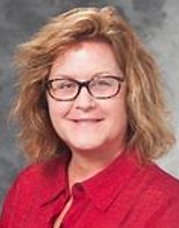 Julie Karpelenia
Julie Karpelenia
Human Resources Director, Office of the Vice Chancellor for Research and Graduate Education
How did you get your start in HR?
I was fortunate to find out about a Human Resources Manager vacancy at UW–Madison through a colleague with whom I worked. He encouraged me to apply for the position. I have been fortunate to work in HR for almost 32 years. Time flies when you are passionate about the work that you do.
What are you proudest of in your career?
The opportunity to lead and mentor many HR professionals at the university. We have so many employees who are amazing and have a lot to contribute to the work in human resources.
What’s been one of your most profound lessons learned over the course of your career?
Commitment and resilience are key. Big changes don’t happen overnight.
What would you tell your younger or less-experienced self – and by extension, the many women who are in their early or mid-careers in HR at UW–Madison?
Act like a sponge; absorb and learn everything that you can from others! An attitude of genuine curiosity will get you far. The worst that can happen is that someone says no.
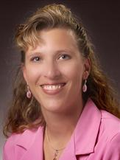 Nancy Graff Schultz
Nancy Graff Schultz
Director of Administration, General Library System
How did you get your start in HR?
I graduated with my bachelor’s degree during a recession and the best job I could find was as an Unemployment Adjudicator. In the following years, I returned to school to obtain my master’s degree but had no luck transitioning my skills from working in the unemployment office to a more generalized HR position. One of my professors mentioned that UW–Whitewater had a project position, and I applied because I was anxious to make the transition. UW–Whitewater had been talking to the HR Department at UW–Madison’s Wisconsin Union, and the topic of recruitment must have come up. UW– Whitewater gave the (Wisconsin) Union my name and before I learned I didn’t get the job at UW–Whitewater, I was invited to interview for the HR role at the (Wisconsin) Union. The rest is history. I took a pay cut to make the transition but knew I wanted to make choices that were going to be in my best interest over the long haul.
What’s been one of your most profound lessons learned over the course of your career?
We are all going to make mistakes, many small ones and some big ones. Own up to your mistakes. Apologize, and when more than an apology is necessary, devise a plan to correct your mistake as best as possible. Also, remember to give grace when you are on the other end of someone’s mistake.
What would you tell your younger or less-experienced self – and by extension, the many women who are in their early or mid-careers in HR at UW–Madison?
Especially since COVID, it’s been easy to stay in our own bubble. I’d encourage you to put yourself out there and network. Go to professional development sessions. Connect with a colleague for advice. Volunteer for work groups. Do what you can to connect with colleagues. You don’t have to be an expert to engage—we all bring unique and valuable perspectives. It’s truly the wonderful colleagues in our community who have helped me through my most challenging times.
especially those who may not be equitably represented in women’s history.